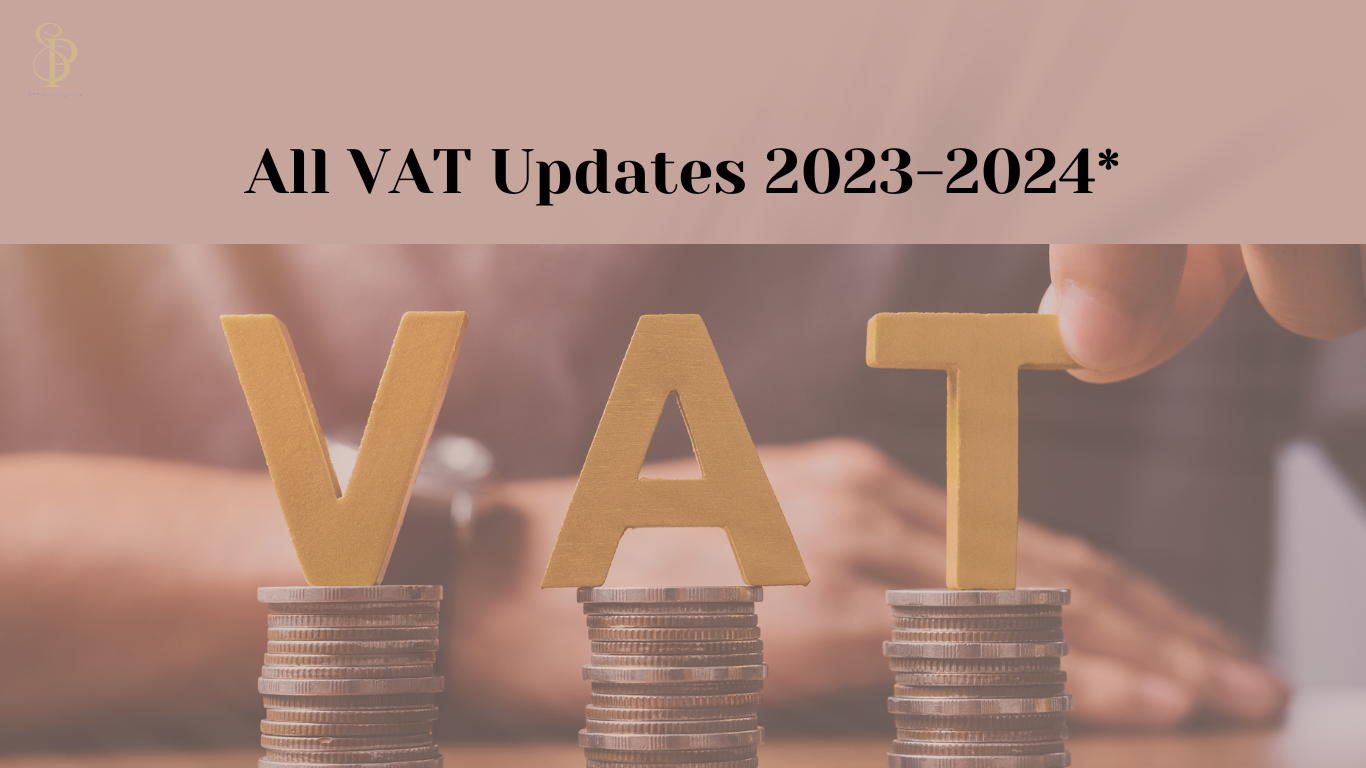VAT Changes Ireland
Explore recent VAT changes in Ireland with expert insights from Portobello Spring. This blog provides a comprehensive overview.
Recent Changes to VAT (Value Added Tax) Regulations in Ireland: A Comprehensive Overview
Explore recent VAT changes in Ireland with expert insights from Portobello Spring. This blog provides a comprehensive overview.

In a groundbreaking move to streamline taxation practices, Ireland has witnessed a historic overhaul of its Value-Added Tax (VAT) system. The Finance Act of 2023 introduces sweeping amendments, promising both simplification and adaptation to contemporary economic demands. Join us as we delve into the key changes set to redefine VAT compliance for businesses across the nation.
Section 57: Defining the Landscape
The journey begins with Section 57, which elucidates the Principal Act as the Value-Added Tax Consolidation Act 2010. This serves as the foundation for subsequent alterations, providing clarity and ease of reference for stakeholders navigating the evolving taxation landscape.
Section 58: Raising the Bar for VAT Registration
In a move aimed at easing the burden on businesses, amendments to section 2 of the VAT Consolidation Act 2010 have been made. The turnover thresholds for mandatory VAT registration have been raised. As of January 1, 2024, the registration threshold for goods increases from €75,000 to €80,000, while the threshold for services increases from €37,500 to €40,000. This adjustment allows suppliers with turnovers below the threshold to opt for VAT registration.
Extension of Reduced VAT Rate for Gas and Electricity (Section 59):
Section 46 of the Value-Added Tax Consolidation Act 2010 sees an extension of the temporary reduced VAT rate of 9% for supplies of gas and electricity until October 31, 2024. Originally introduced under the Finance (Covid-19 and Miscellaneous Provisions) Act 2022, this extension provides continued relief for consumers.
Repeal of Section 51 (Section 60):
Section 51, addressing Revenue determinations of VAT rates and exemptions, has been repealed. With more effective channels now available for taxpayers to seek clarity on VAT treatment, this repeal streamlines the process. The effective date of this change is the date of passing of the Finance Act (18 December 2023).
Introduction of Deposit Return Scheme (Section 61):
A significant development is the introduction of the Deposit Return Scheme (DRS) under Environment legislation. This initiative, effective from December 18, 2023, imposes a refundable deposit on single-use drinks containers. Section 92A of the Value-Added Tax Consolidation Act 2010 details the taxation of unredeemed deposits on such containers.
Adjustment in Farmers’ Flat-Rate Addition (Section 62):
Section 86 sees an amendment to confirm the decrease in the farmers’ flat-rate addition from 5% to 4.8%, effective from January 1, 2024. This adjustment aims to achieve full compensation under the flat-rate scheme, providing relief to unregistered farmers.
Amendments to VAT Exemptions (Sections 63, 64, and 65):
Several amendments have been made to VAT exemptions, including:
- Issuing of Shares (Section 63): Correcting the misconception that issuing shares is exempt from VAT.
- Emergency Accommodation (Section 64): Explicitly providing a VAT exemption for the letting of immovable goods, including emergency accommodation.
- Zero-Rating for Audiobooks and E-books (Section 65): Zero-rating introduced for audiobooks on physical support and electronically supplied books, newspapers, and audiobooks (excluding specific content).
Zero-Rating for Solar Panels in Educational Buildings (Section 66):
A positive step towards sustainability; the supply and installation of solar panels on or adjacent to buildings used for primary or post-primary education is now 0-rated.
Conclusion
These changes, effective from January 1, 2024, mark a significant shift in Ireland’s VAT landscape. Staying informed and adapting to these modifications is crucial for individuals and businesses alike. Our team at Portobello Spring is here to assist you in navigating these changes seamlessly. If you have any questions or require further clarification, please feel free to reach out to us at info@irishaccountant.ie.
Remember, staying compliant with tax regulations not only ensures a smooth financial journey but also contributes to the overall economic well-being.
Disclaimer: The information in this blog post is intended for general informational purposes only and should not be construed as professional advice. It is your responsibility to seek professional advice tailored to your specific situation.
Let us help you make the right moves for your business by contacting and joining us
Join our newsletter now and get insights on the latest developments going on in the accounting, tax, incorporation, immigration and company secretarial world. Or, contact us by writing in your query in the contact form given below.

Leave a Reply